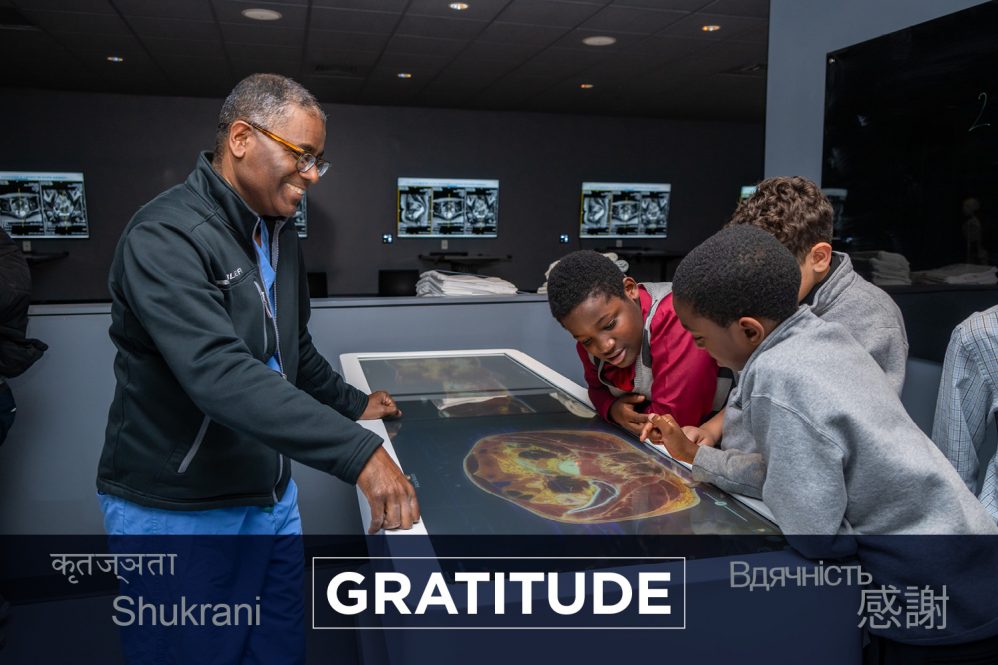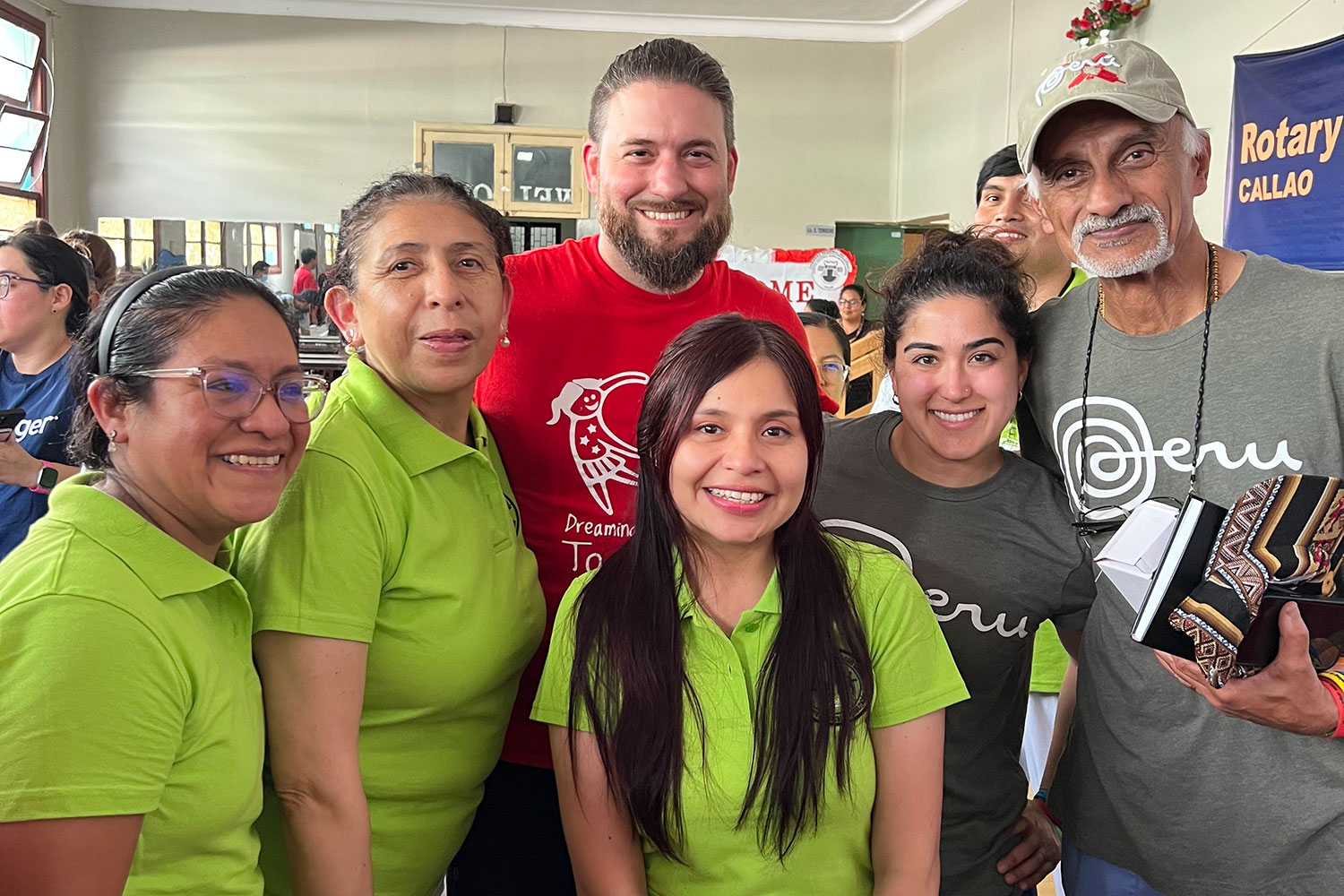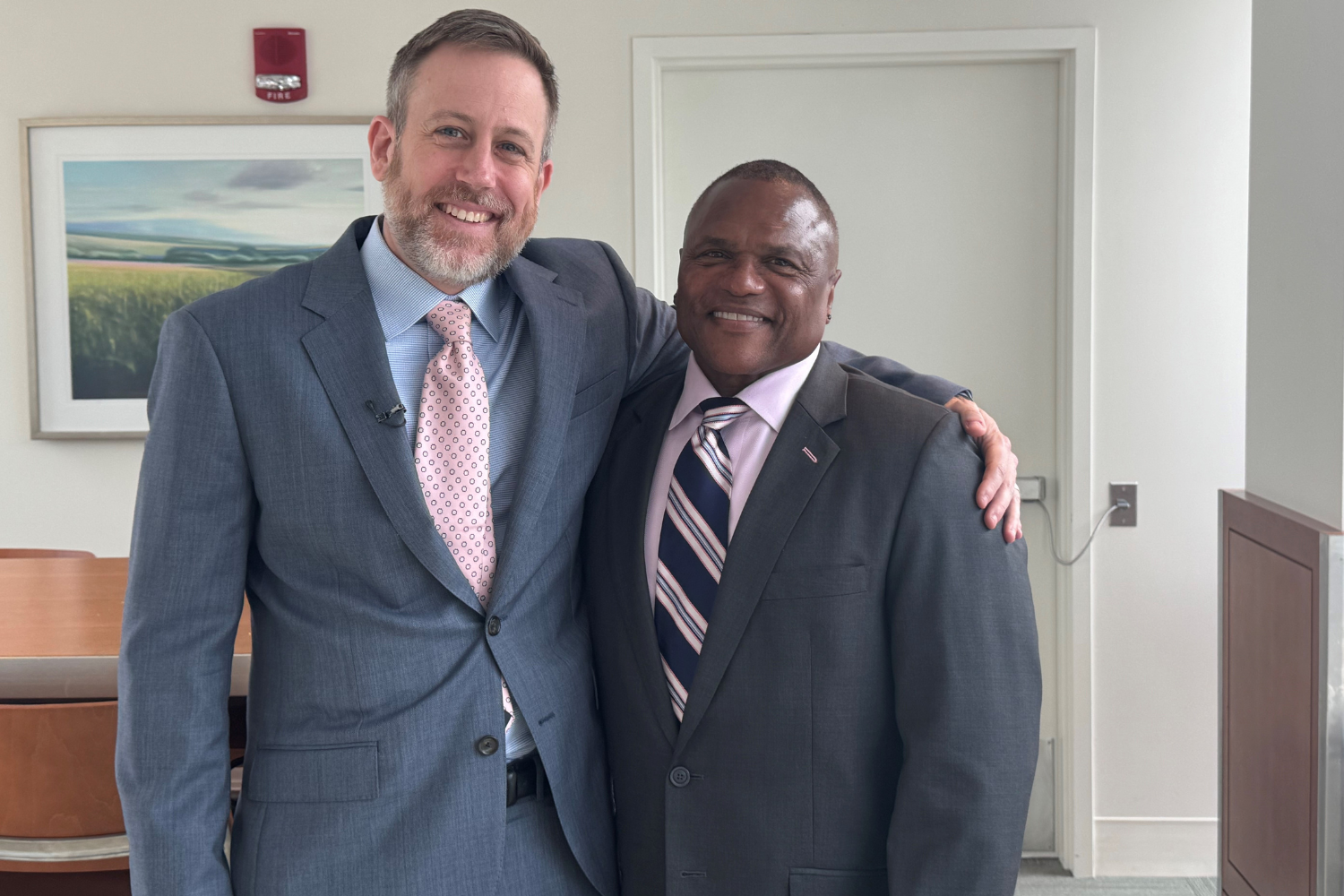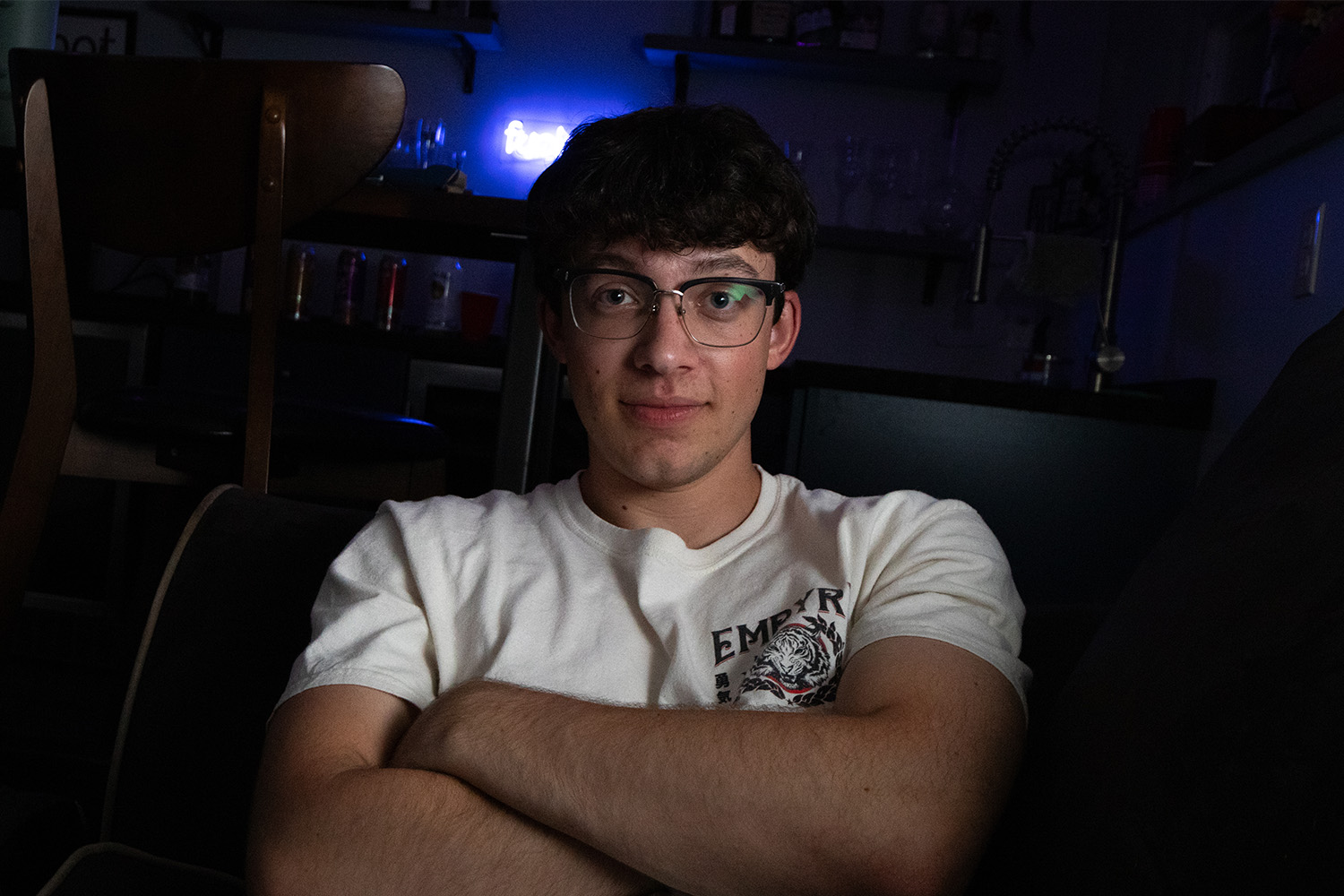“Thank you Dr. Amankwah!” says Hartford’s Covenant Prep and its very grateful class of sixth-grade boys.
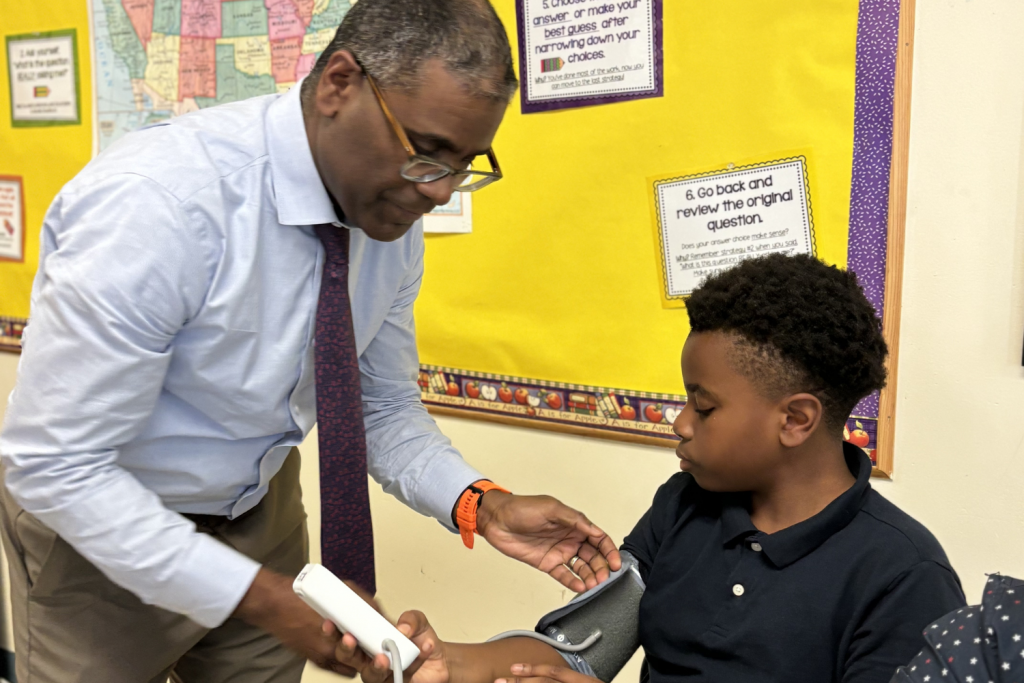
This fall semester Chief of UConn Health’s Division of Vascular Surgery and Endovascular Surgery Dr. Kwame Amankwah began volunteering to teach the young male students greater health care literacy as part of the school’s new Intellectual Field Day initiative on Fridays.
“It’s been fun!” exclaims Amankwah who is grateful for the new teaching opportunity as he has always wanted to begin working with the youth of Connecticut to introduce greater health literacy early-on. “I am so impressed and proud of these successful, young men growing up in the city of Hartford and attending this great school which has a 100% high school graduation rate.”
During one of the first educational sessions for the sixth-graders Amankwah gifted each student a stethoscope and a digital blood pressure machine. “They were pretty excited that they were able to keep the devices that many of them never had a chance to see or use before. They had lots of questions for me, and then more questions!”
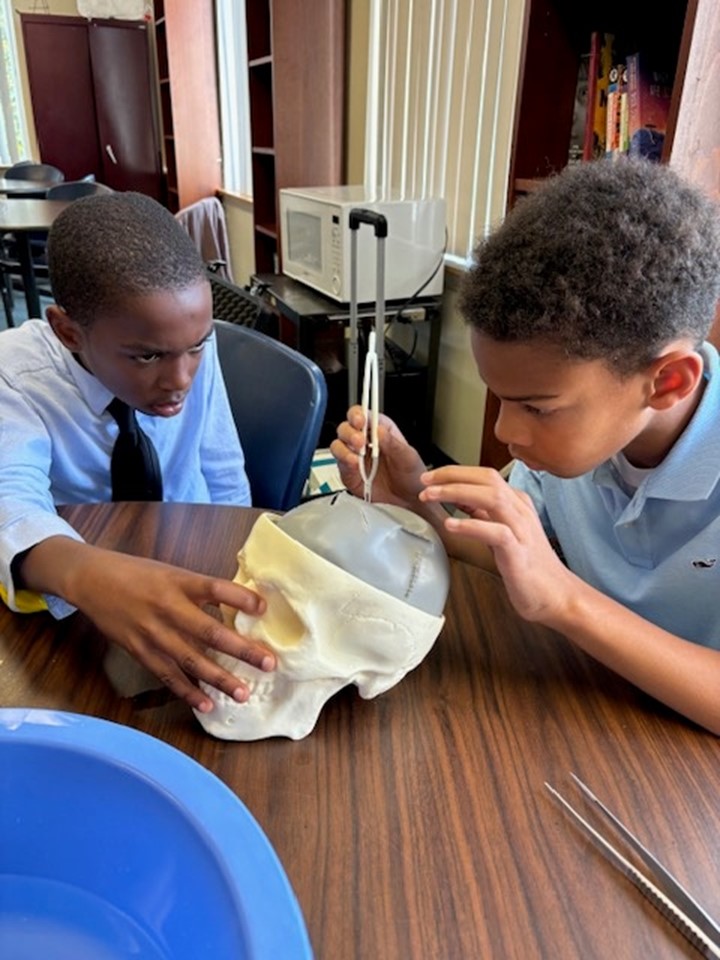
Amankwah taught the students how to listen to each other’s heart and lungs, how to take their own pulse, and how to take blood pressure. He explained what a pulse is and what blood pressure is, and what the numbers mean. For homework, he had the students record their pulse and blood pressure at home and to practice doing readings on their family members. He also encouraged them to perform experiments like running around the block and then re-recording their health metric findings too to see the difference in the measurements.
During another follow-up session Amankwah brought into the classroom simulation surgery technology to teach the students about his work as a vascular surgeon. A simulation of the body’s largest blood vessel the aorta was set-up and the students deployed stents into it to simulate the repair of an aneurysm; a skull model was displayed so students could practice how to close the brain’s dural layer with clips and also taught how to suture skin with the sewing of stitches.
“It’s amazing to see the school children so interested in medicine and surgery,” he says. “It was quite impressive seeing the school students use the surgical tools that they had never held before. They did really well and were excited!”
He adds, “It was definitely exciting for me too to see their great enthusiasm. Also, they are very inquisitive. There were indeed hundreds of questions!”
“I really liked getting to work with Dr. Amankwah and his colleagues. My favorite part was when we repaired the brain with clips. I thought it was really interesting that the tool wasn’t reusable,” shared middle-schooler Nathan A. of Hartford who is about to turn 11. “I want to be a neurosurgeon. I liked operating on the brain.”
On Nov. 25, the middle-schoolers and Amankwah took their health care education to a whole new level.
The students visited UConn School of Medicine’s Virtual Anatomy Lab (VAL), one of the first VAL’s in the nation, so they could use the state’s medical school’s high-tech Anatomage tables that give a 3-D digital, life-size inside-look into what the human body, its anatomy and its organs looks like inside when healthy and diseased.
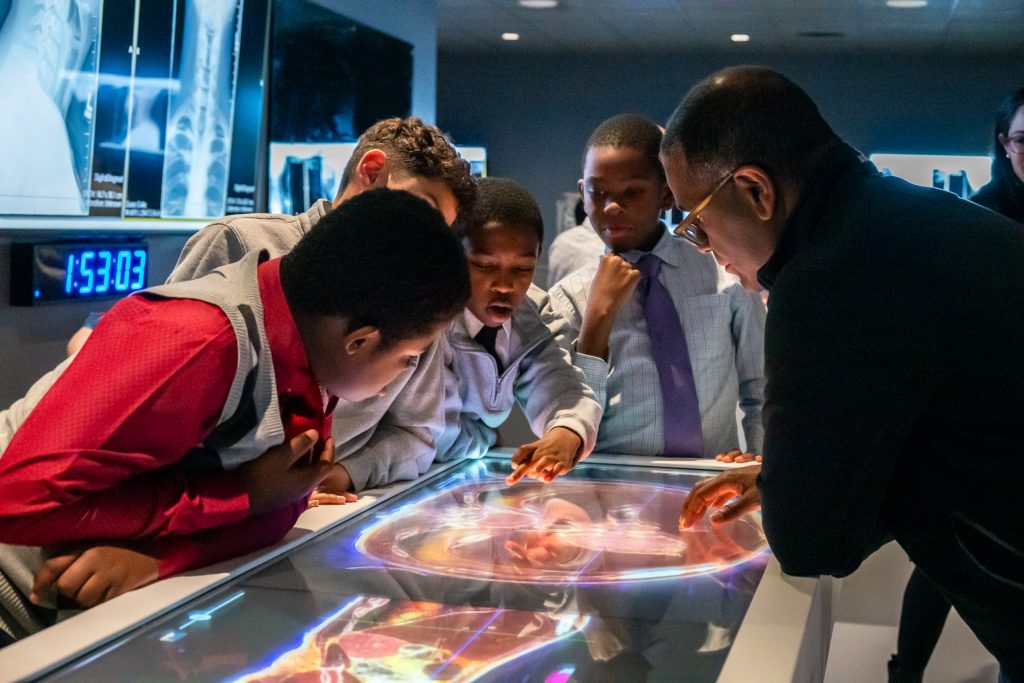
“Oh, that’s the aorta!” exclaimed Nathan to the vascular surgeon Amankwah. “I remember we learned about that in the classroom.”
“It’s cool. I had fun today in anatomy,” shared Darius, 11, of Hartford who said he couldn’t wait to go home and tell his family about the learning experience at UConn Health. “I remember when Dr. Amankwah gave us a blood pressure machine. I ran down the street and then checked my blood pressure. It was really high.”
“What we do as physicians at UConn is very rewarding. We help others and take care of them. But we also educate patients and the next generation of doctors,” says Amankwah. “I am very thankful to be able to interact with these young Hartford students and introduce them to a future career option in medicine for their life.”
Paying it Forward
Growing up Amankwah is thankful he had the opportunity as a child to see medicine first-hand in his own family.
“I grew up in medicine. My father was a physician in high-risk OB, and I knew I always liked science,” he says. He ended up majoring in Human Biology at the University of Toronto where he also played varsity rugby.
“Being on a team was very inspiring to my future career path in medicine,” he says but first he also attended graduate school at Toronto where he performed neuroscience research before attending medical school at Albany Medical College and then residency training in general surgery at the State University of New York Health Science Center at Brooklyn.
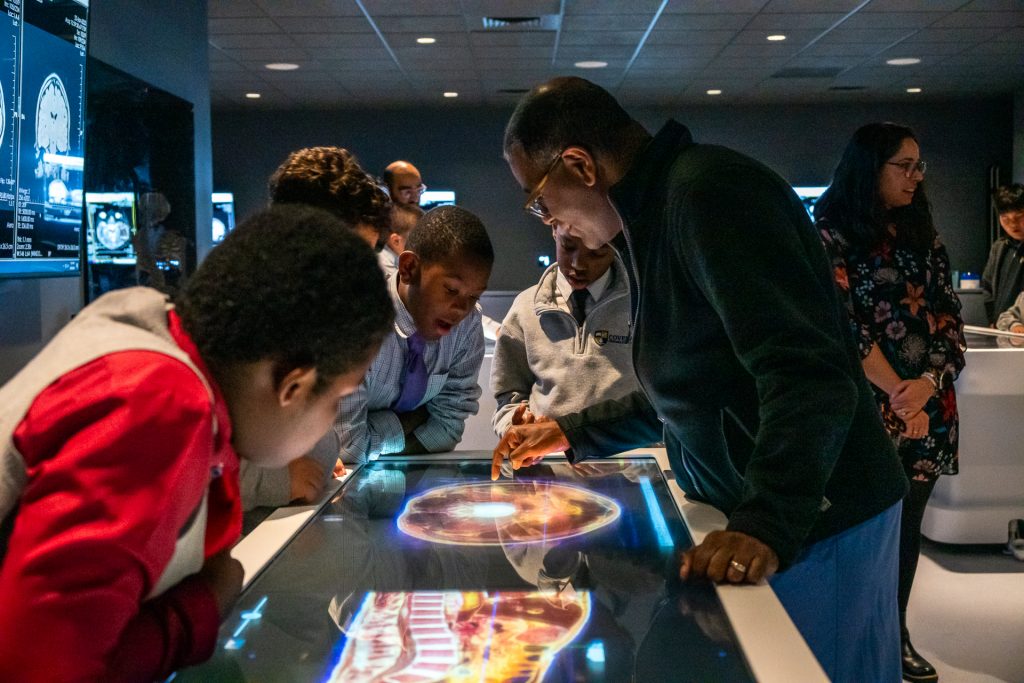
“In my third year of general surgery residency I got more exposure to the field of vascular surgery which actually inspired me to pursue it for my career,” says Amankwah who completed his vascular surgery fellowship training in Connecticut at Yale School of Medicine.
His own exposure to a new career path is a lesson that Amankwah is now paying forward to others by gifting inner-city youth greater health literacy and early- life exposure to medicine with fun, educational hands-on experiences allowing the state’s youth to find their possible future career paths too.
Covenant Prep will be tracking each of the school children’s interest in medicine and science after participation in the Initiative. Also, Amankwah is already looking forward to expanding the pilot program to other schools with the help of more vascular surgery faculty on his team and their resident physician trainees, and even other specialties like orthopedic surgery experts.
“Our students have been extremely fortunate to have Dr. Kwame Amankwah from UConn Health teaching classes as part of our new Intellectual Field Day Initiative,” says Covenant Prep’s Principal, Nikki Cannavo.
“It’s been an exciting time for everyone, and we are honored to be given the opportunity to be part of these young men’s education,” concludes Amankwah with gratitude.
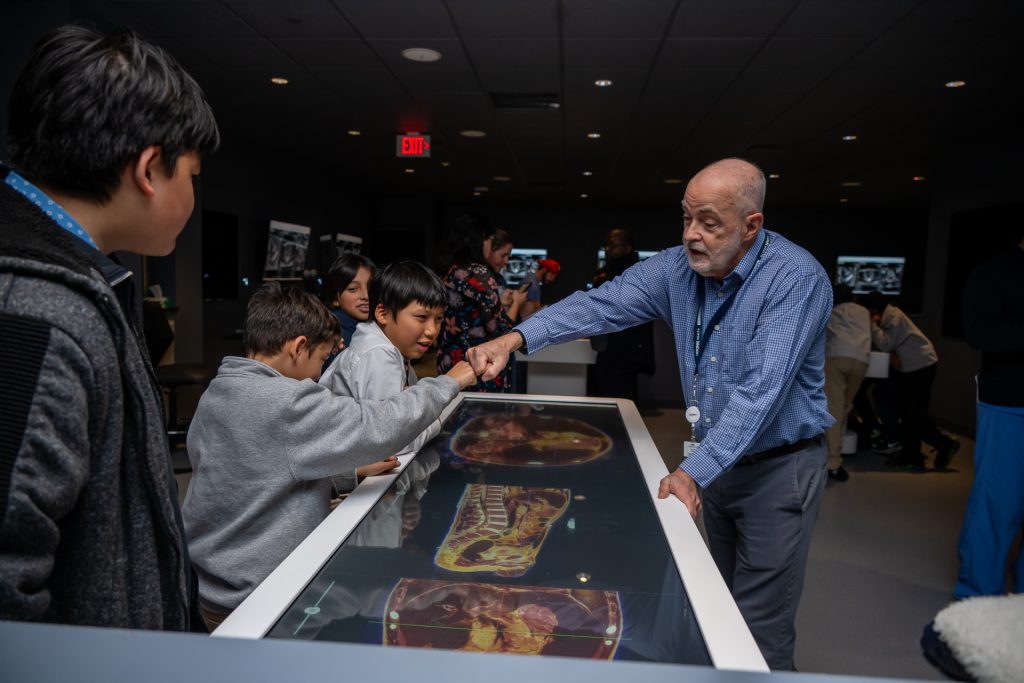
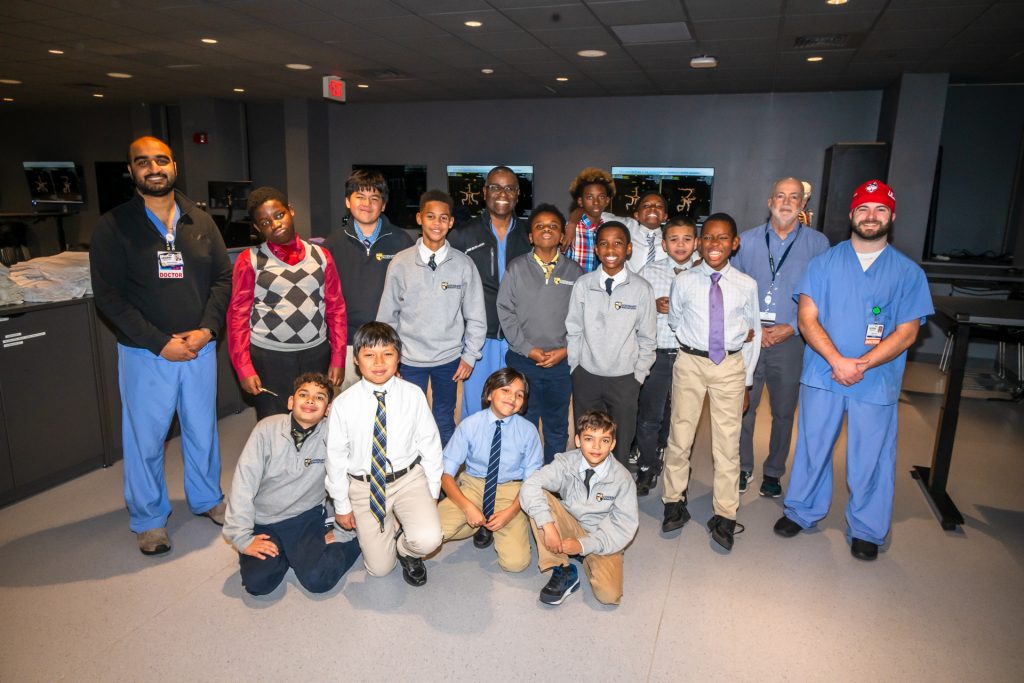
This content is part of a collaborative initiative of the Office of Diversity and Inclusion, with UConn Health’s Chief Diversity Officer Dr. Jeffrey Hines, to celebrate the institution’s shared values and its workforce. Send your word-of-the-month nominations to thehub@uchc.edu.
